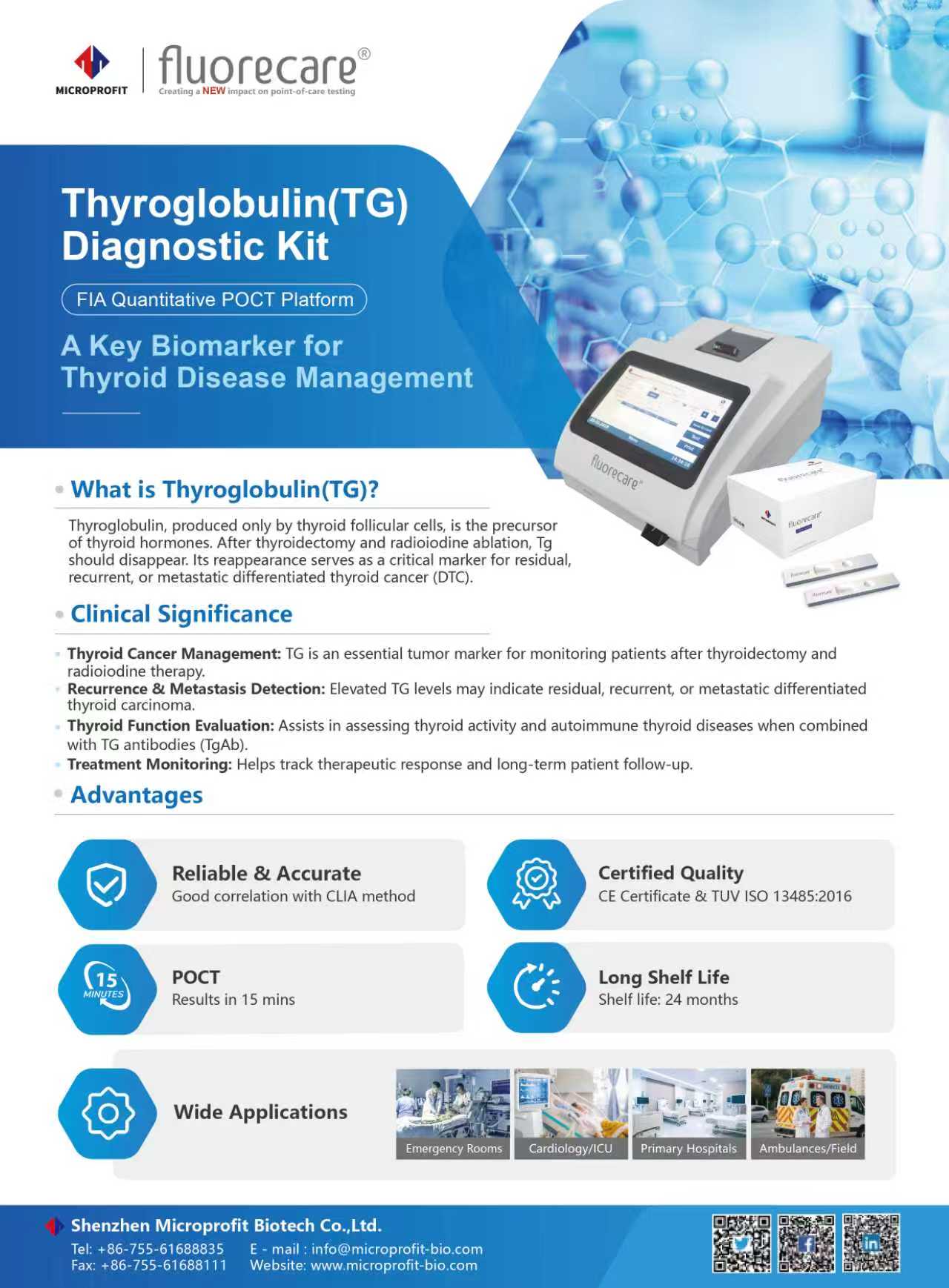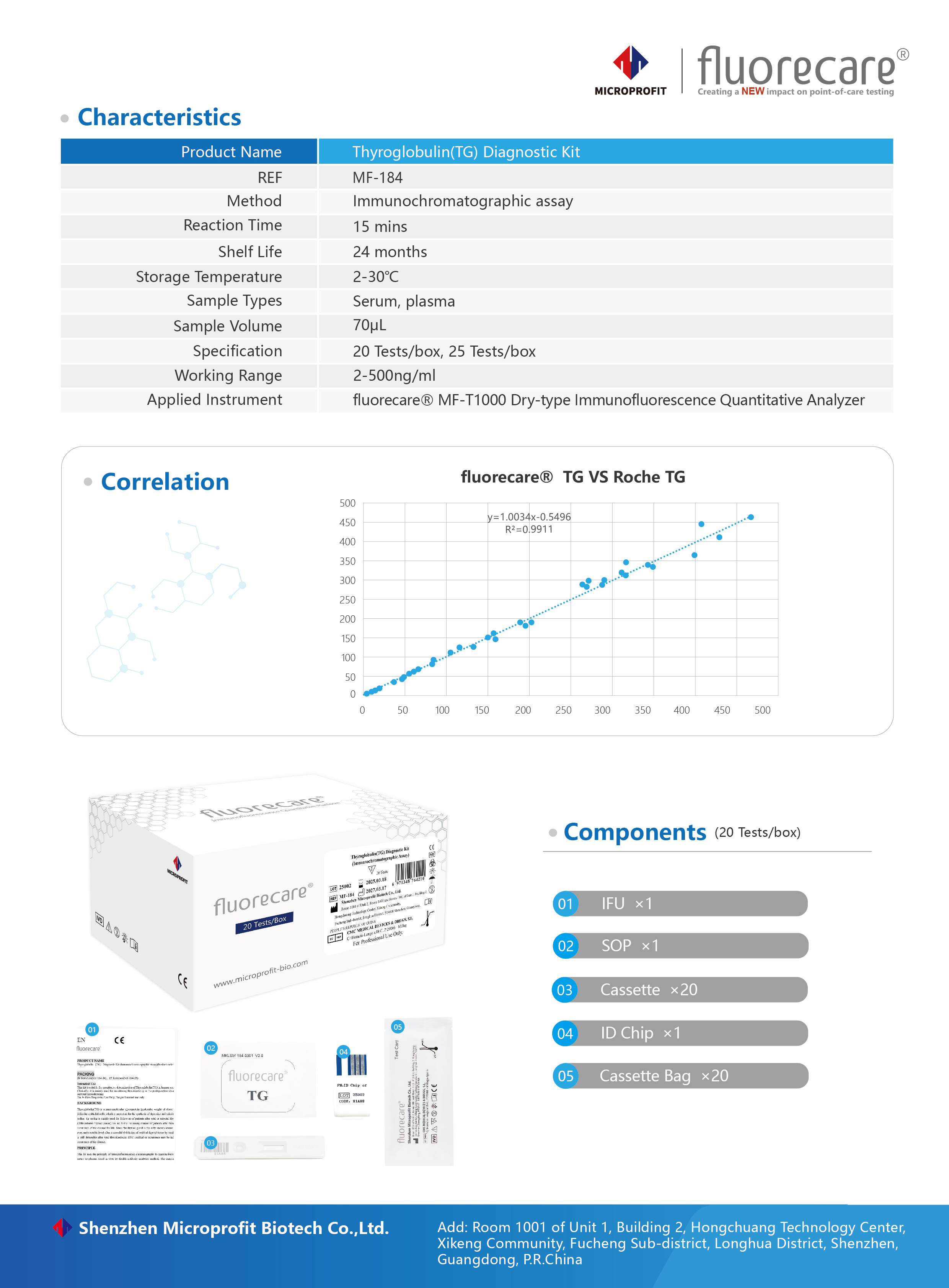Thyroglobulin (TG):A Key Biomarker for Thyroid Disease Management
Overview
Thyroglobulin (TG) is a high-molecular-weight glycoprotein produced exclusively by thyroid follicular cells. It serves as the precursor of thyroid hormones (T3 and T4) and plays a vital role in hormone synthesis and storage within the thyroid gland.
Under normal conditions, TG is released in small amounts into the bloodstream. However, after total thyroidectomy and radioiodine ablation, TG levels should become undetectable. Therefore, its reappearance or elevation is considered a critical biomarker for residual, recurrent, or metastatic differentiated thyroid cancer (DTC).
Clinical Significance
1. Thyroid Cancer Management
TG is an essential tumor marker for monitoring patients with differentiated thyroid carcinoma (DTC) after thyroidectomy and radioiodine therapy. Detectable TG in serum indicates possible residual thyroid tissue or tumor recurrence.
2. Recurrence and Metastasis Detection
Rising TG concentrations during follow-up strongly suggest recurrent or metastatic DTC. Serial monitoring provides early warning of disease progression before imaging or clinical symptoms appear.
3. Thyroid Function Evaluation
When combined with thyroglobulin antibody (TgAb) measurements, TG testing contributes to the comprehensive assessment of thyroid function and the management of autoimmune thyroid diseases such as Hashimoto’s thyroiditis and Graves’ disease.
4. Treatment and Long-Term Monitoring
Quantitative measurement of TG assists in evaluating the effectiveness of surgical or radioiodine therapy, monitoring disease remission, and supporting long-term patient follow-up for thyroid cancer survivors.
Analytical Advantages
Modern Thyroglobulin Diagnostic Kits based on fluorescent immunoassay (FIA) or POCT (Point-of-Care Testing) technologies provide rapid, accurate, and quantitative results for clinical use.
Key features include:
-
High analytical sensitivity and specificity
-
Quantitative detection within 15–20 minutes
-
Compatible with serum or plasma samples
-
Suitable for hospital laboratories, endocrine clinics, and follow-up testing centers
These features make TG testing an indispensable component of IVD diagnostic panels for thyroid disease management.
Conclusion
As a specific and sensitive biomarker derived solely from thyroid tissue, Thyroglobulin plays a central role in the monitoring of differentiated thyroid carcinoma, assessment of thyroid function, and evaluation of therapeutic outcomes. Regular TG testing enables early detection of recurrence, supports personalized treatment decisions, and improves the long-term prognosis of thyroid cancer patients.



